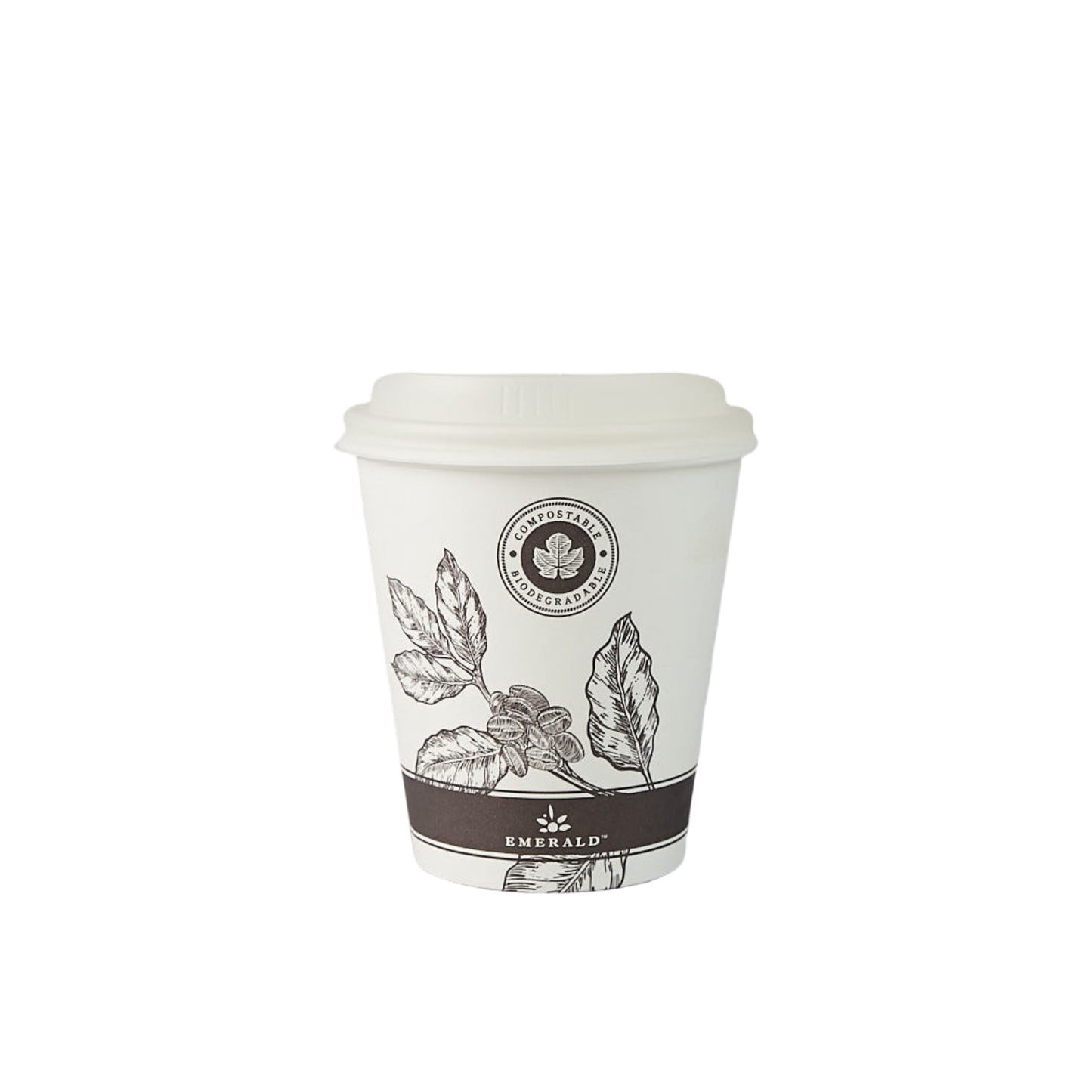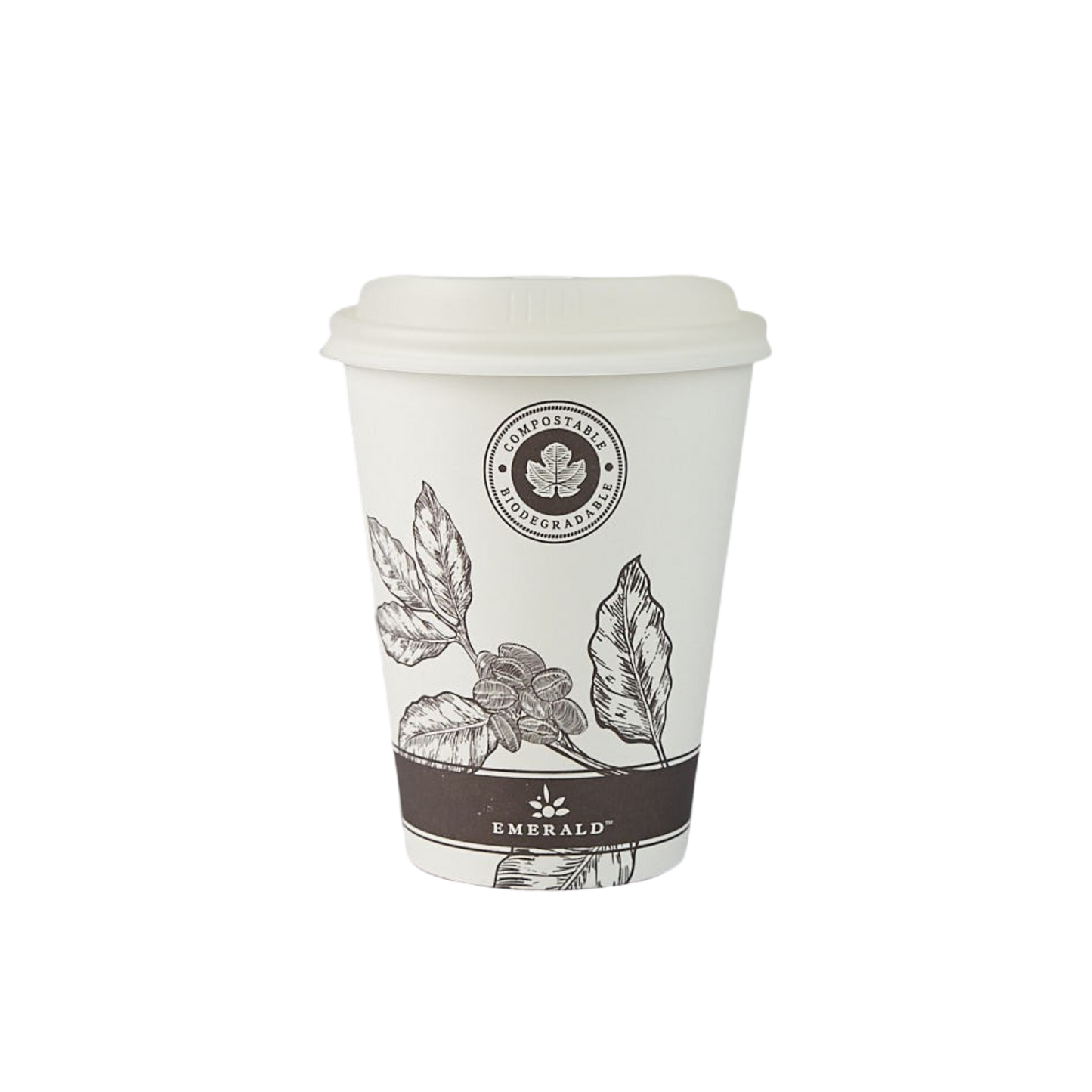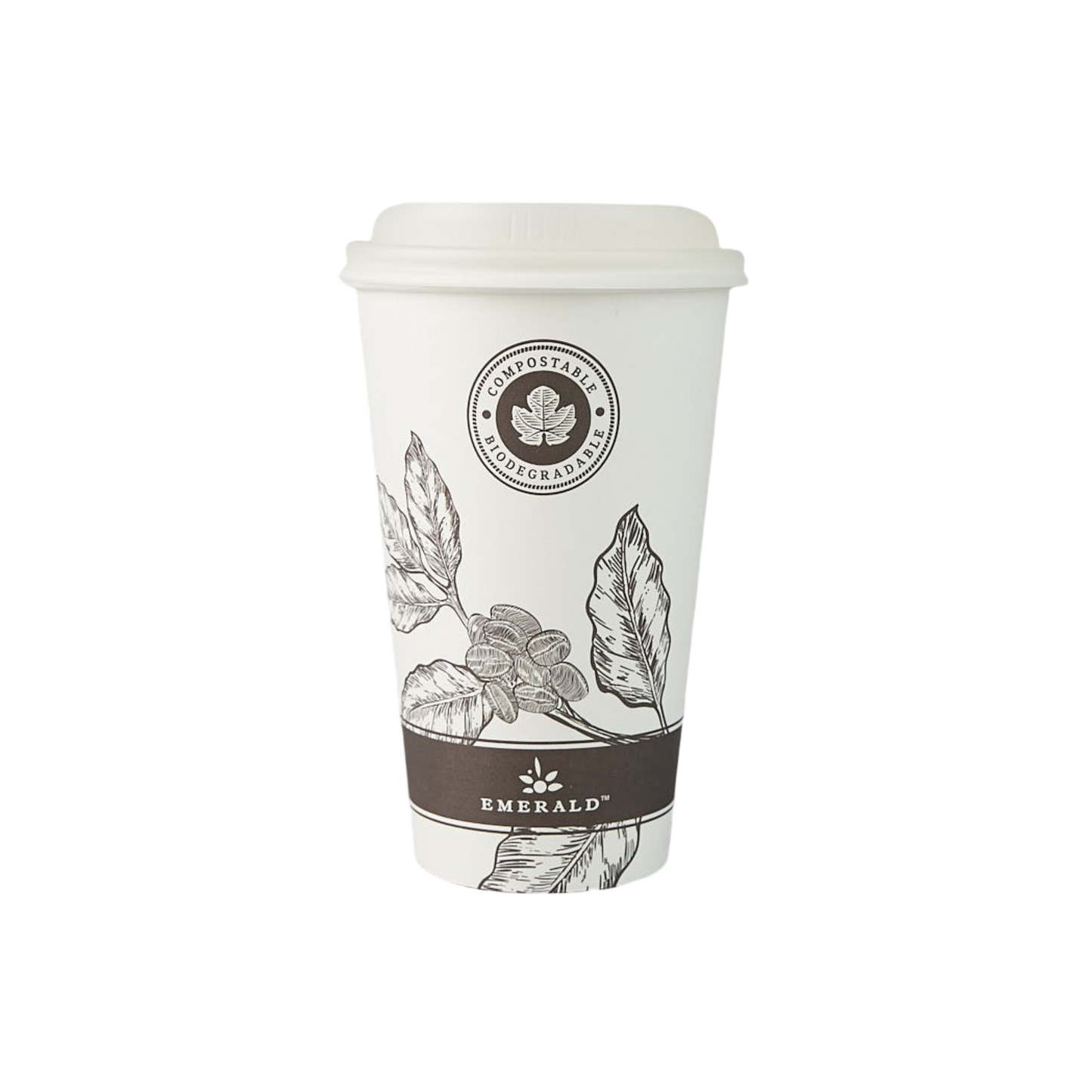Compostable FSC® Certified Hot Cups
Compostable FSC® Certified Hot Cups
SKU:EMRPLA010
Couldn't load pickup availability
Our FSC® Certified Compostable Hot Cups are made with FSC® Certified paper from responsible sources and coated with PLA, a plant-based plastic that’s a sustainable, renewable, and biodegradable alternative to plastic lining.
All hot cup sizes are compatible with our Universal Dome Lids: EMRPLA4950 and EMR4941.
Part of our One Bin Total Solution
- Commercially Compostable
- Plastic-Free & BPA-Free
- Contains No Additive PFAS



Unlike traditional disposables, our disposables are biodegradable and commercially compostable where municipalities accept, meaning they won't sit in landfills for centuries. Plus, they are free from harmful chemicals and bleaches, making them safe for you and your family to use.
Environmental Attributes
Commercially Compostable Where Municipalities Accept
Products that are commercially compostable break down into organic matter in industrial composting facilities without leaving toxic residues. Commercial Composting facilities maintain higher temperatures and controlled conditions to ensure these products decompose efficiently and completely. This process not only helps reduce landfill waste but also generates nutrient-rich compost that can be used to enhance soil health. Learn More
FSC® Certified
FSC Certified indicates products are responsibly sourced from forests meeting environmental, social, and economic standards set by the Forest Stewardship Council. The certification ensures sustainable forestry practices that benefit biodiversity, local communities, and economies. Learn more
BPA-Free
BPA-Free products are made without Bisphenol A (BPA), a chemical linked to health issues. Manufacturers can instead produce products using rapidly renewable agricultural plants such as sugarcane, corn, bamboo, bagasse, or miscanthus. These products offer similar functionality without the associated health risks, providing a safer choice for conscious consumers. Learn More
Plastic-Free
Polylactic acid (PLA) is a sustainable bioplastic alternative to traditional plastics made from petroleum. PLA is made from renewable resources such as cornstarch or sugarcane, and is biodegradable and commercially compostable, reducing the long-term impact on landfills and oceans. Learn more
No Additive PFAS (Forever Chemicals)
A product that contains No Additive PFAS (per- and polyfluoroalkyl substances, also known as forever chemicals because they take nearly “forever” to break down) means that throughout the product’s lifecycle—from production to disposal—there is no additional or intentional inclusion of PFAS, reducing the risk of contamination and long-term ecological damage.
Elemental Chlorine Free
Elemental Chlorine Free (ECF) is a whitening process for products that utilizes chlorine dioxide instead of elemental chlorine gas which can release harmful dioxins and other toxic compounds into the environment.
Water-Based Ink
Unlike traditional solvent-based inks, which often contain volatile organic compounds (VOCs) that can be harmful to both health and the environment, water-based inks are generally considered more eco-friendly and safer for use. These inks offer vibrant colors and good durability, making them a popular choice for products and packaging.
USDA Certified Biobased Product
USDA Certified Biobased Products are approved by the USDA for containing renewable biological ingredients, derived from plants and renewable materials. They offer a sustainable alternative to petroleum-based products, supporting greenhouse gas reduction and sustainable practices. The certification process ensures biobased content standards are met through rigorous testing and third-party verification. Learn more
Compatible Lids
-
Plastic-Free Compostable Universal Dome Hot Cup Lids
Regular price $122.61Regular priceUnit price / per$122.61Sale price $122.61 -
Recyclable Universal Dome Hot Cup Lids
Regular price $77.42Regular priceUnit price / per$77.42Sale price $77.42





